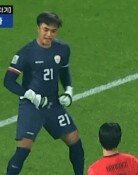Learning from S. Korean, Chinese, Japanese students` debates
Learning from S. Korean, Chinese, Japanese students` debates
Posted November. 20, 2014 01:56,
I have never seen such a scene.
"When the Korea-Japan Basic Treaty was signed in 1965, didn`t they reach an agreement on a final settlement including individual compensations?"
"No, issues including the comfort women were not even predicted. The agreement does not mean an end to individual rights to compensations."
A heated debate is going on in front of my eyes regarding Japan`s post-war reparations. The debate between two student teams took place on last Tuesday at Dongseo University in Busan.
The two teams of six consisted of two students from South Korea, China and Japan, respectively. The debate, in which Chinese and Japanese students also debated in the Korean language, was substantial in content.
To be more specific, the debate was part of the "Campus Asia" class for students from South Korea`s Dongseo University, China`s Guangdong University of Foreign Studies and Japan`s Ritsumeikan University.
The students were juniors who had learned the languages and cultures of the neighboring countries since the freshman year and studied together at each university for several months over the last two years. Now, they are taking the last class of the second round at Dongseo.
Ten students from each country are divided into five teams for debates. The day`s theme was post-war reparations. Other teams also debated over sensitive issues such as the Dokdo/Takeshima issue, the Senkaku Islands/Diaoyu Dao issue, Yasukuni Shrine visits and the argument on colonial modernization.
Therefore, some Japanese students claim that "Takeshima is Korean territory," while some Chinese debaters assert that the Senkaku Islands belong to Japan. They consider the debates games and make thorough preparations for a team play.
Each time, the other teams sit on the audience seats and pepper the debaters with questions before choosing a winning team. On that day, I also played the role, breaking into cold sweats.
How did the students feel? I asked them during a dinner meeting.
"It was very perplexed at first because I had to make arguments countering my country`s position," one said. "But the whole process was fun as I learned many things during my research."
"My visions have broadened because I am well aware of what other countries think," another one said.
"In fact, I had the opposing view but I ended up doing my best to win the debate."
All the students said such things. They were all fluent in the three languages and had friendly conversations. Professor Lee Won-beom, who guided the students, said, "I am glad that we have East Asian students who are transcending their nationalities." I felt the same way.
Some readers might get angry. One might insist that Koreans students be infused with Korea`s arguments. But there is no need to worry. Having studied the strengths and weaknesses in the other side`s arguments, they would be able to go for the jugular of the other side if they become diplomats.
Meanwhile, the Asia-Pacific Economic Council (APEC) summit was held in Beijing, China at a similar timing. The long-awaited Japan-China summit finally took place on the sidelines. It provided relief to many Japanese citizens. But what relieved many South Koreans might be Chinese President Xi Jinping`s seemingly calculated discourtesy of not smiling at all as if ignoring Japanese Prime Minister Shinzo Abe while shaking hands.
Could it not be South Korean President Park Geun-hye who was relieved by Xi`s attitude? She had a conversation with Abe during the ASEAN summit. Her gentle look was in contrast with Abe`s. She also won a chance to propose a three-way summit among the three neighbors.
But how possible would it be? And when can a Seoul-Tokyo summit be held? As soon as Abe returned to Tokyo, he announced that he would dissolve the parliament and called an early election.
And this thought comes to my mind. What if the leaders of the three neighbors are invited to the Campus Asia program and study regional issues quietly. They can put themselves in the other sides` shoes and have debates. Who would be the most qualified leader in East Asia? A final judgment would be made later.
(Written by Yoshibumi Wakamiya, senior fellow of Japan Center for International Exchange and former chief editor of the Asahi Shimbun)







